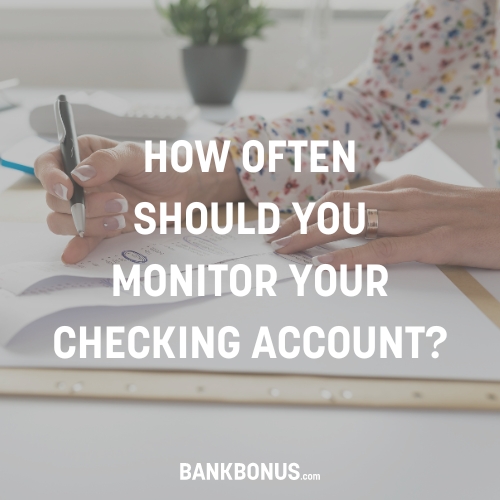You can tell a lot about someone’s financial well-being by looking at their credit score. Your credit report will reveal whether you’re on top of your personal finance — or if you’re someone who often makes late payments. But what are the advantages of using credit?
Having a good credit score can help you in so many ways. It can open doors to financial benefits and perks you never knew could be available – from the very best credit cards and cash back offers to lower interest rates and higher credit limits.
Conversely, having bad credit can make you miss out on great offers – and, generally, make your life harder. It can be harder to get a credit card, a mortgage, or any other loan – because lenders typically don’t trust those with bad credit history.
In this post, we’ll look at the main advantages of credit — and why maintaining a good credit score or improving a bad one is so important.
Why Your Credit Score Matters
Your credit score is the financial rating you get based on your payment history. It shows companies your creditworthiness – how likely you are to repay something as a borrower.
Several credit bureaus exist in the United States, but the three major ones are Experian, Equifax, and TransUnion. These credit bureaus provide your credit score to the companies or lenders you’re approaching.
Lenders look at your credit score before deciding whether to work with you. Your credit history greatly impacts what line of credit lenders can offer you – and whether they offer it at all.
The higher your score, the more desirable you are as a customer and the better terms you’re likely to get.
Top 10 Advantages of a Good Credit Score
Having a good credit score comes with some amazing benefits. Let’s look at the top 10 advantages of having good credit in more detail.
1. Best Loan Terms
Those with excellent credit will typically get the best loan terms – whether a student loan, a personal loan, an auto loan, a mortgage, or even a cash advance offered by a credit card issuer.
If you have poor credit, applying for a loan could mean that your interest rate is significantly higher than what customers with good credit scores get. A good credit history can save you hundreds, if not thousands, of dollars throughout your life.
You can use your good credit score to get the bank to waive certain fees (e.g., annual fees or late fees) because you’re a more trustworthy customer. Banks always need more trustworthy customers who pay on time and repay their loans with interest.
Even if a lender doesn’t offer the best terms to you straightaway, having an excellent credit score means you can negotiate your terms — it gives you negotiating power.
This power can be particularly handy when negotiating loans for big purchases like a home or a car.
To start the negotiation process, you’ll need to prequalify for a loan, then take the rate estimate to the lender’s competitors to see if they can make you a better deal.
Typically, banks want to work with reliable customers, so they’re likely to offer a deal to beat the competition. You’d be surprised by how far businesses (including banks) are willing to go to beat the competition and win the best customers.
2. Lower Interest Rates
Interest rates can sometimes be excessive on loans and credit cards – but having a good credit score can help.
The interest rates advertised by banks and other lenders often aren’t fixed. They don’t have to give you the rate they’re advertising or the rate you see on comparison websites. That’s why someone with good credit is likely to get lower interest rates.
When you ask a lender for a loan, they will use your credit score to determine the interest rate they can offer.
The better your credit score, the lower the interest rates. That’s because someone with a good credit score is considered more trustworthy and more likely to pay it back — whereas someone with bad credit is a more risky customer.
The interest rate offered to those with poor credit can differ significantly from those with good credit. It’s always worth improving your credit score before applying for a loan.
If you have poor credit, consider whether taking out another loan is the best option. Struggling to make ends meet often won’t be saved by another big loan — it’ll just add another pile of debt to your financial situation.
3. Avoid Security Deposits
Another advantage of good credit is not having to deal with security deposits.
A security deposit is an amount you’ll need to pay a business to guarantee you can meet the terms of your agreement. When renting an apartment or buying a house, you’ll need to set up an account for utilities (e.g., gas, water, internet, electricity).
The utility company will look at your credit score to understand you better as a customer — and whether you can keep up with your utility payments. They use customers’ credit scores to determine who should pay a deposit.
Poor credit means utility companies often ask you to make security deposits to protect themselves from non-payment. They return these deposits after you’ve made a set number of on-time payments (and gained their trust).
Someone with good credit doesn’t have to make these deposits – and gets to keep the money in their pocket.
4. Lower Car Insurance Rates
Car insurance companies love customers with good credit — and reward them with lower insurance rates and premiums.
If you’re located in a region with high car insurance prices, having a good credit score could be an excellent way to reduce how much you pay.
These advantages also apply to other insurance types — not just car insurance. Therefore, making on-time payments and maintaining a good credit score could save you hundreds of dollars on insurance.
5. Better Credit Card Rewards
Using a credit card is excellent for building credit. However, just like debit cards, not all credit cards are created equal.
Some credit cards offer fantastic rewards, while others only offer mediocre ones. The best credit card rewards are usually reserved for those with the best credit score.
An excellent credit score unlocks various perks and benefits — like credit card points that help you fully cover vacations, cash back on your daily spending, and even extended warranty on large purchases.
6. Larger Loan and Credit Card Limits
When someone applies for a loan, lenders need to know they will pay it back before they agree to lend it.
A good credit score shows you are a reliable borrower — so lenders aren’t afraid to loan you bigger sums. Someone with a good payment history is more trustworthy than someone who has struggled to make on-time payments in the past.
You’ll need a strong credit profile if you need to borrow a lot of money. Larger personal loans (say up to $100,000) are typically harder to find, but someone with good credit will stand a much bigger chance of getting them.
7. Getting Certain Jobs
Organizations have varying degrees of background screening requirements.
While employers typically check your education, employment history, and whether you have a criminal record — some may implement a credit check as part of the screening process. So, having bad credit may stand in the way of getting a dream job.
Why do companies want to check an applicant’s credit score? There could be several reasons, such as:
- To confirm the applicant’s identity.
- To make sure the applicant has a decent track record of managing money.
- Ensuring they can entrust them to handle money without any risks.
- Knowing the applicant’s financial behavior won’t impact their performance in the workplace.
Employers will need your permission, so you will know if a company checks your credit rating before hiring you. Other companies won’t be able to see that they’ve checked it – so your credit score won’t be affected.
Jobs requiring a credit score check include accountants and bookkeepers, financial planners, police and law enforcement, or jobs in the armed forces.
If a company feels that the applicant’s financial situation could affect their performance in the position they’re looking to fill, they may decide not to give the job to someone else.
8. Easier Approval for Rental Properties
Rental applications are also affected by your credit score. Landlords need to know you’ll be able to make on-time payments before you become a renter — so they’ll consider your payment history.
If you have a good credit score, your chances of being approved as a tenant are higher. Which makes sense – would you trust someone who always makes late payments to pay you on time?
On the other hand, someone with poor credit history may need to pay a higher deposit, rent short-term, or be rejected altogether.
9. Get Good Terms on a New Cell Phone
Cell phones can be a big expense. The good news is that good credit can help you get more favorable financing terms, reducing the overall amount you pay.
A good credit score means you can finance a new phone at 0% interest, potentially saving you hundreds of dollars.
Good credit opens doors to so many good cell phone deals – while bad credit could mean you’ve got no other option but to overpay.
10. More Borrowing Options
When you need to borrow money — whether for a big purchase, a vacation, or getting a degree — it is good to know that you have several options.
The more options you have, the better terms you can get because lenders will typically compete with one another to win you as a customer.
If you have good credit, you’ll have many more lenders wanting to work with you and willing to offer you better borrowing terms, lower interest charges, and other perks that those with poor credit will never get.
What is a Good Credit Score?
Good credit score rates vary depending on the scoring model. According to Equifax, here’s how credit scores are categorized:
- Below 580 is considered poor
- 580 to 669 is considered fair
- 670 to 739 is considered good
- 740 to 799 is considered very good
- 800 and up is considered excellent
How to improve your credit score:
Having good credit is incredibly important for your financial well-being. It can provide you with many more options and open doors that are typically closed for those with a bad credit score.
There are several things you can do to improve your credit score. The key thing to remember is that building a credit score takes time — it’s not an overnight process.
So start making these changes today so you can reap the advantages of good credit in the future.
Build Credit History
The first thing to do is to start building your credit history. If you don’t have much credit history, it’s difficult for companies and lenders to assess you, potentially leading to a lower credit score.
Young people commonly have this problem — the sooner you start building your credit history, the better.
The first step is to open a bank account — then manage it well to show companies you’re responsible financially.
Getting a credit card will also help you build your credit score, but only if you use it sensibly and don’t overspend. Paying it off in full each month is important. Otherwise, it can worsen your credit score rather than improve it.
Another way to build your credit score is to manage your bills and rent payments well. It shows lenders you’re responsible and can be trusted.
Keep Your Credit Utilization Under 30%
Credit utilization is how much of the allocated credit you are using. It is calculated by dividing the amount of revolving credit you’re using by the total amount of revolving credit available.
If you look at a FICO score or VantageScore, a good credit utilization rate is below 30%. A high credit utilization rate could imply that you’re having financial troubles – so make sure you don’t use more than 30%.
Make Regular Payments
Making regular, on-time payments each month will show lenders that they can trust you as a borrower and help maintain a healthy credit score.
A well-managed bank account or a credit card you’ve had for a long time will likely improve your credit score.
Remember to pay back your credit card balances by the due date every month, and don’t overspend so that you can keep up with your payments.
Is a Good Credit Score Worth It?
Overall, your credit history impacts so many areas of your life — from being able to buy your first property to getting a loan for a business idea.
Start building your credit and use the tips above to maintain a strong credit profile. If you have a low credit score, take steps to improve it right now — and reap the benefits of a better credit score in the future.





Comments are closed.
Comments are closed here.